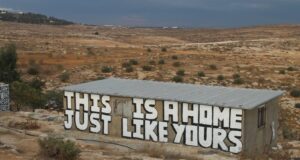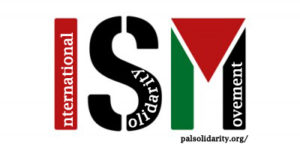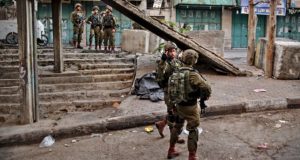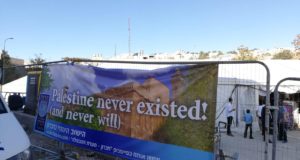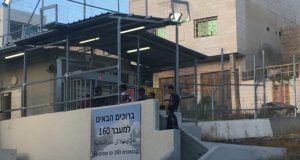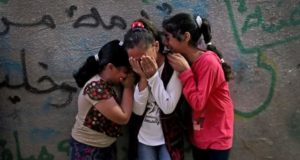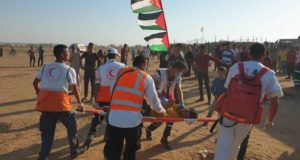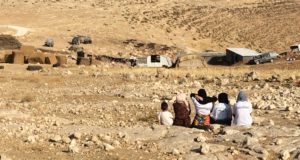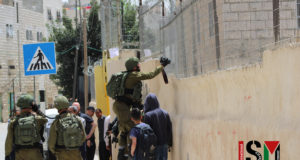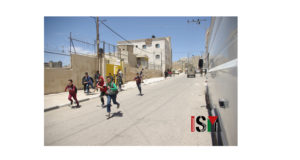16 October | International Solidarity Movement | Masafer Yatta For the last 42 years the Israeli occupation forces have been slowly but surely grinding the region of Masafer Yatta into dust. Now, in 2022, the various injunctions, petitions, ...
Read More »Keep Palestinian-led activism alive during COVID-19
ISM's human rights activism faces an unprecedented challenge in the current COVID-19 pandemic, international travel bans and global economic down turn. We ask for your support to help us maintain our ongoing projects and keep our offices ready to resume on the ground international solidarity and action for Palestine when the virus is contained.
Read More »About the legitimisation of the Palestinian oppression in Al Khalil (Hebron)
Personal reflections of a ISM activist about the settlers' violence and its related impunity in Al Khalil, West Bank. To which extent these people are allowed by the Israeli soldiers to transform a Palestinian city into their own amusement-park?
Read More »When holidays bring hate: Sarah’s Day in Occupied Hebron
For Palestinians living in Occupied Hebron, Sarah's Day, a major Jewish holiday, means an increase in violent attacks by illegal Israeli settlers.
Read More »Waiting at a checkpoint
An ISM activist writes about her experiences volunteering in Hebron (Al Khalil) during Netanyahu's visit to the city.
Read More »Slain Gaza protester: father, husband, brother, and “a Palestinian who dreamed of liberation”
Gazan journalist speaks with Alaa Nizar Hamdan’s wife and family the day after he was shot and killed by Israeli forces in the Great March of Return in Gaza.
Read More »On the 71st week of the Great March of Return, the world forgets while Gazans remember
August 25, 2019 | International Solidarity Movement | Gaza, occupied Palestine Eleven consecutive weeks of protests in Hong Kong have captured the focus of online commentators, heads of state, and global media. In France, 39 weeks of protests by the ...
Read More »Inheriting resistance in the South Hebron Hills: “I am my father’s daughter, if he can do this, so can I… and more”
August 6 | International Solidarity Movement | South Hebron Hills, occupied Palestine “My life is occupation … all the time you have to be ready for the bad, and the most bad you can imagine,” Sameeha Huraini tells me, as ...
Read More »Education under occupation
August 11 | International Solidarity Movement | Hebron, occupied Palestine Whilst continuing my work with ISM this year, I spent four weeks working at the Hebron/al-Khalil office of Defence for Children International focussing on the way that the occupation has ...
Read More »A personal account of detention, racism and broken rules
May 8, 2019 | International Solidarity Movement, Al-Khalil team | Al-Khalil (Hebron), occupied Palestine The neighborhood of Salaymeh next to Salaymeh checkpoint (160) has been the center of tensions between Palestinians and the Israelis in the city of Al-Khalil (Hebron). ...
Read More » International Solidarity Movement Nonviolence. Justice. Freedom.
International Solidarity Movement Nonviolence. Justice. Freedom.
